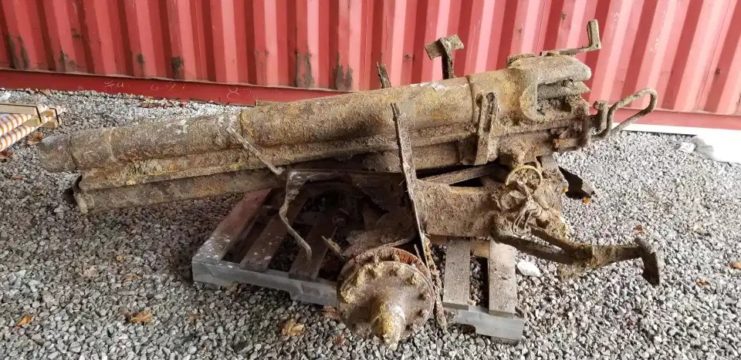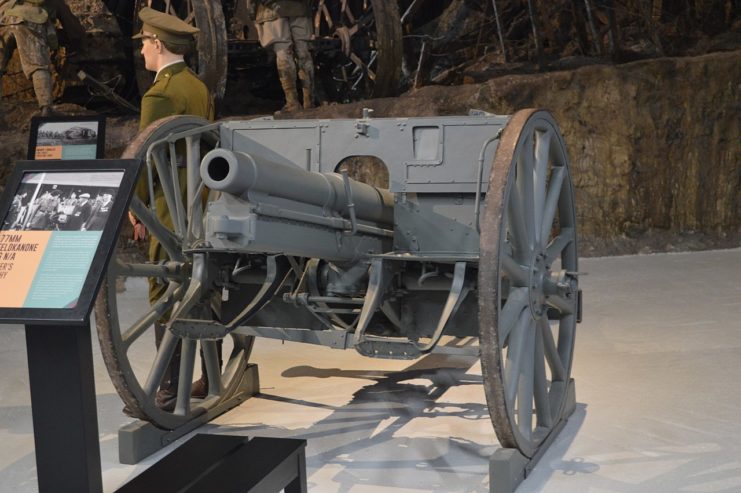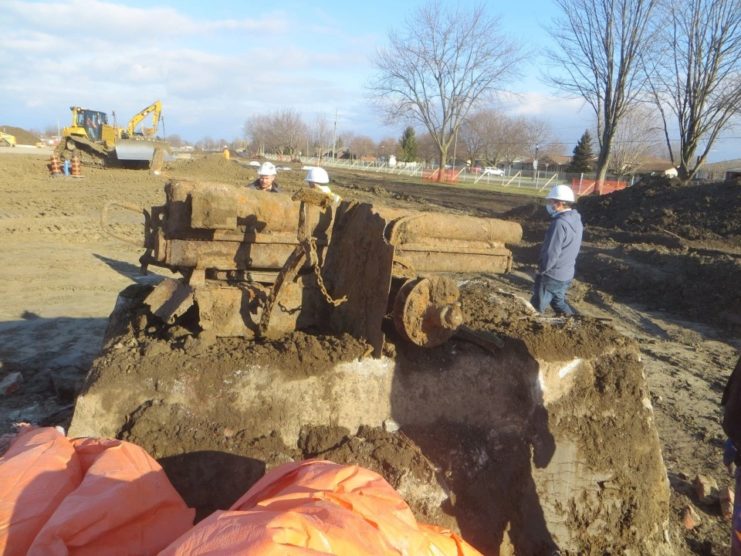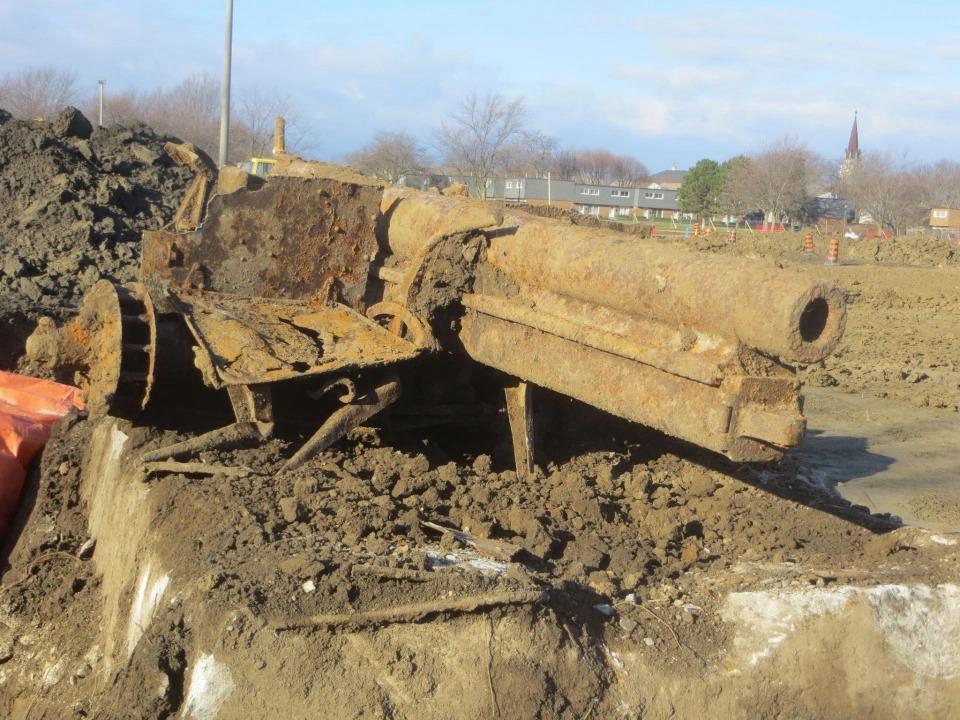A super rare German cannon from World War I has been found in Canada. The relic was buried in a baseball field and forgotten about several decades back.
Did players on a pitcher’s mound in the town of Amherstburg, Ontario suspect it contained a deadly yet defunct Feldkanone 96? Unlikely. Construction workers appear to have stumbled upon it with their bulldozers – the site is earmarked for a new school!
What is it doing there, almost 4,000 miles from the battleground of the War to End All Wars? Canadian forces brought many trophies home with them. Most were melted down for precious scrap metal. Others wound up on display in local communities.
Quoted by The Sun in December, Amherstburg’s Mayor Aldo DiCarlo revealed the piece was donated to the town by the Greater Essex County District School Board.
There it rested by the local cenotaph till the 1970s, when the monument was moved. Authorities decided the dilapidated Feldkanone should stay put. Mayor DiCarlo states the cannon was “buried ceremoniously”.

In doing so, locals inadvertently preserved the last German artillery gun of its kind, according to The Sun. As the Mayor puts it to CBC News: “The historical significance I think just can’t be overstated”.
It’s noted the Feldkanone has its breechblock intact. This suggests the Boche didn’t have time to disable the weapon before the enemy got their hands on it.
What battles was it involved in? That’s difficult to say. But as reported, an educated guess is the city of Cambrai, France. Soldiers from Canada, Britain and New Zealand went to snatch Cambrai from the Kaiser’s clutches in 1917/18.
The Mayor believes this extraordinary piece is “one of a little over 1,100 similar trophies – howitzers, trench mortars and field guns – that were shipped back to Canada in 1922.”
CBC News spoke to Kevin Fox, manager of policy and committees for Amherstburg. He highlights the death of 2 men from the area at the Battle of Vimy Ridge (1917), one decorated. For him, finding the Feldkanone is “a nice harkening back” which pays tribute to their sacrifice and that of others.
The cannon wasn’t in the best condition when consigned to the earth. However its resurrection has grabbed people’s attention.
Mayor DiCarlo mentions to CBC News “communication from a number of military historical associations”. These parties are interested in helping restore the weapon to its former glory… the glory of its acquisition that is, rather than anything to do with the original owners!

Fox News refers to other World War I finds that have made for dramatic headlines. A couple in Maryland had another soil-based surprise when tending to their flower bed. Unlike the Ontario cannon, this 37 MKI projectile was live and ready to do some serious damage!
Danger comes from below and indeed above. Such was the case with an English family who realized a grenade was sat on the roof tiles. Incredibly the undisturbed explosive had spent a century living over people’s heads.
“In the current lockdown, many of us will likely be getting around to all those cleaning and DIY jobs people love to put off” resident Charlie Bubear told SWNS, as relayed by Fox. What he found whilst doing the gutters is easily a contender for ultimate pandemic surprise!

Some curveballs have been pleasant ones. The Sun reminds readers of an epic liquor haul, the property of Tzar Nicholas II, that ended up in a watery grave during the conflict.
Salvagers were ready to celebrate in the wake of the thirst-quenching find. Especially when discovering the booze was worth an estimated 6 million dollars plus!
Another Article From Us: For Sale: Vintage Truck that Helped French Winemakers Fight the Germans
Post-restoration, it’s thought the Feldkanone will go on display again as part of the community’s story. A combination of unusual setting and surprise historical encounter keeps the memory of those fateful times alive for future generations…
